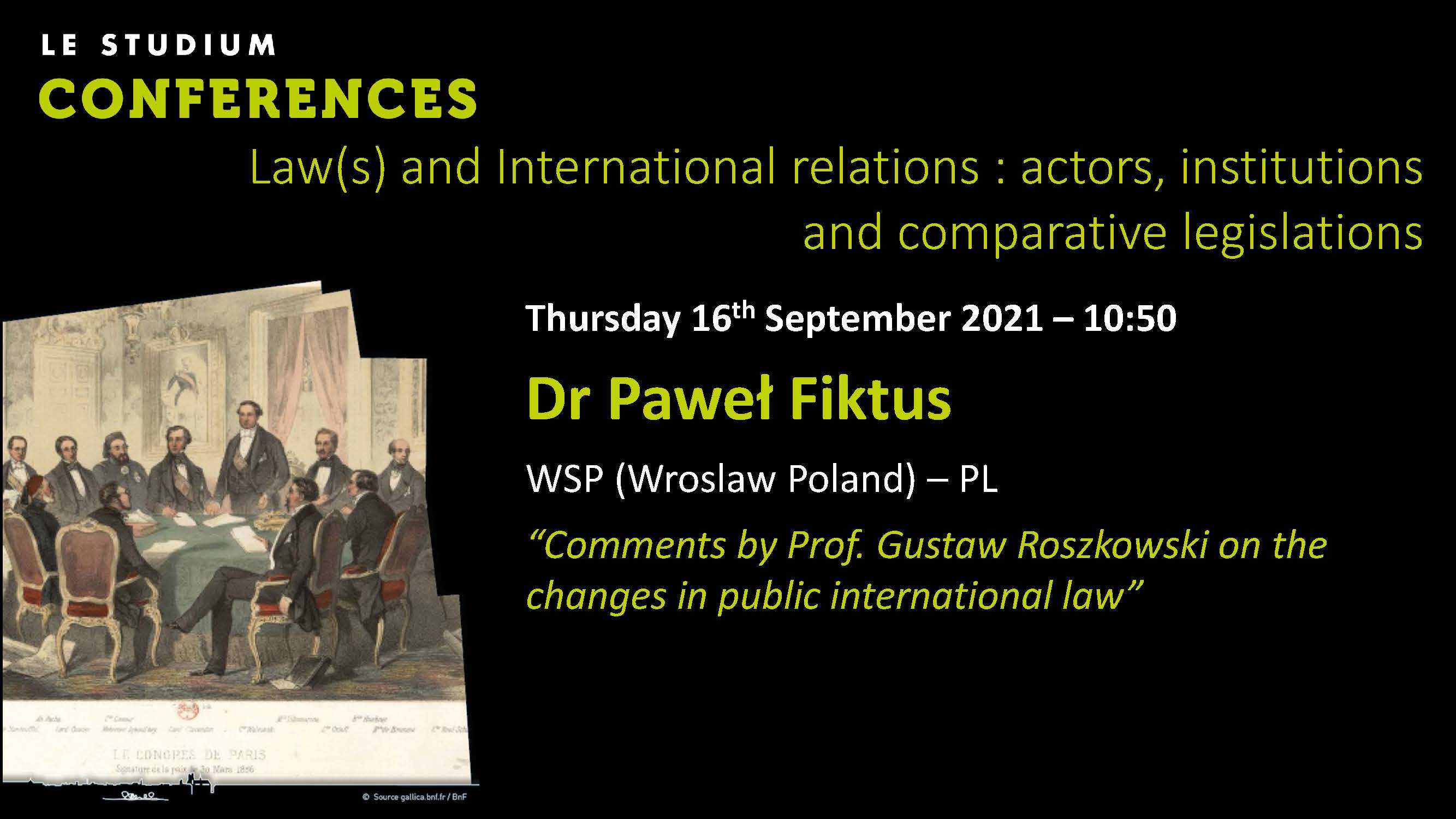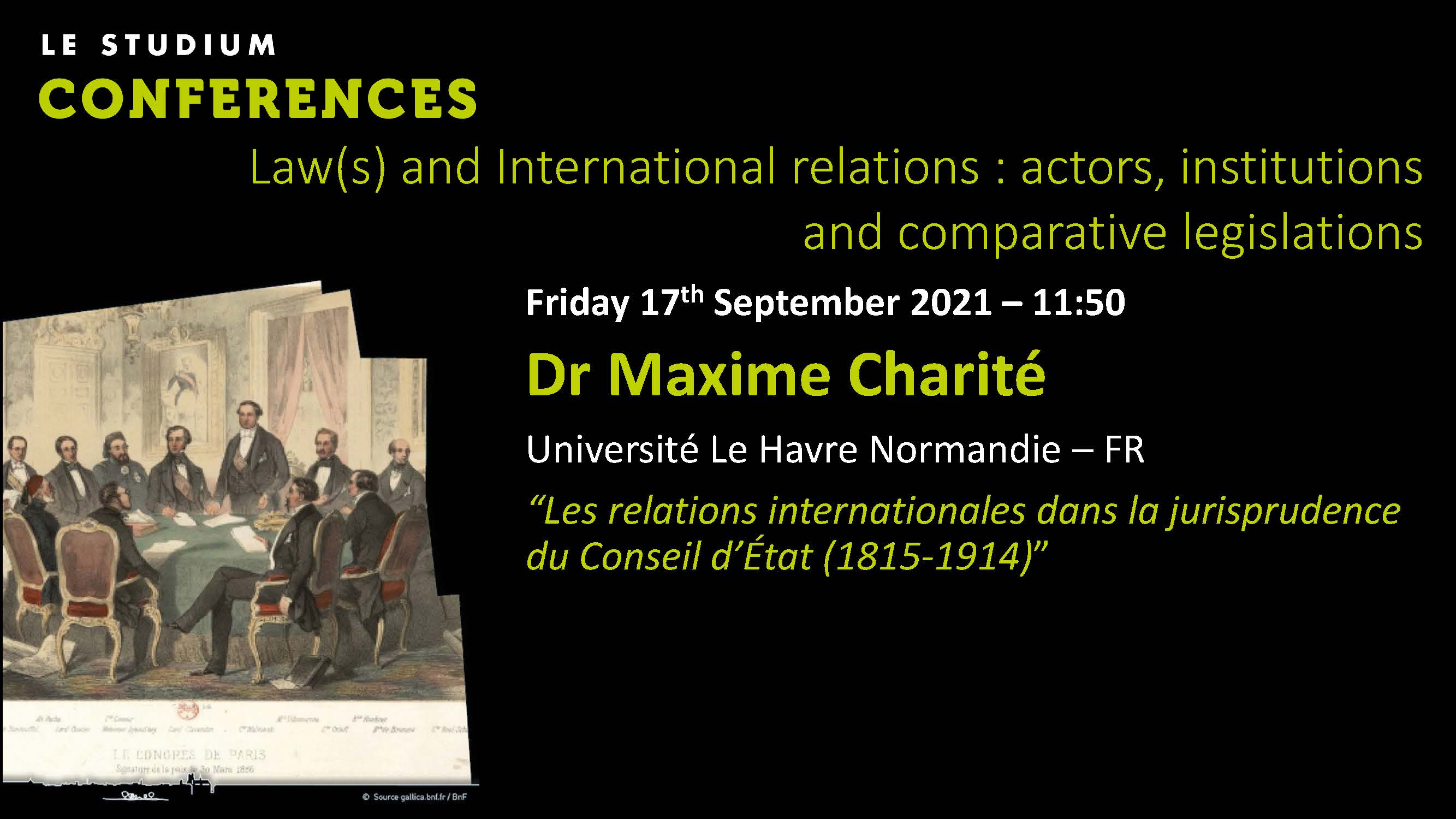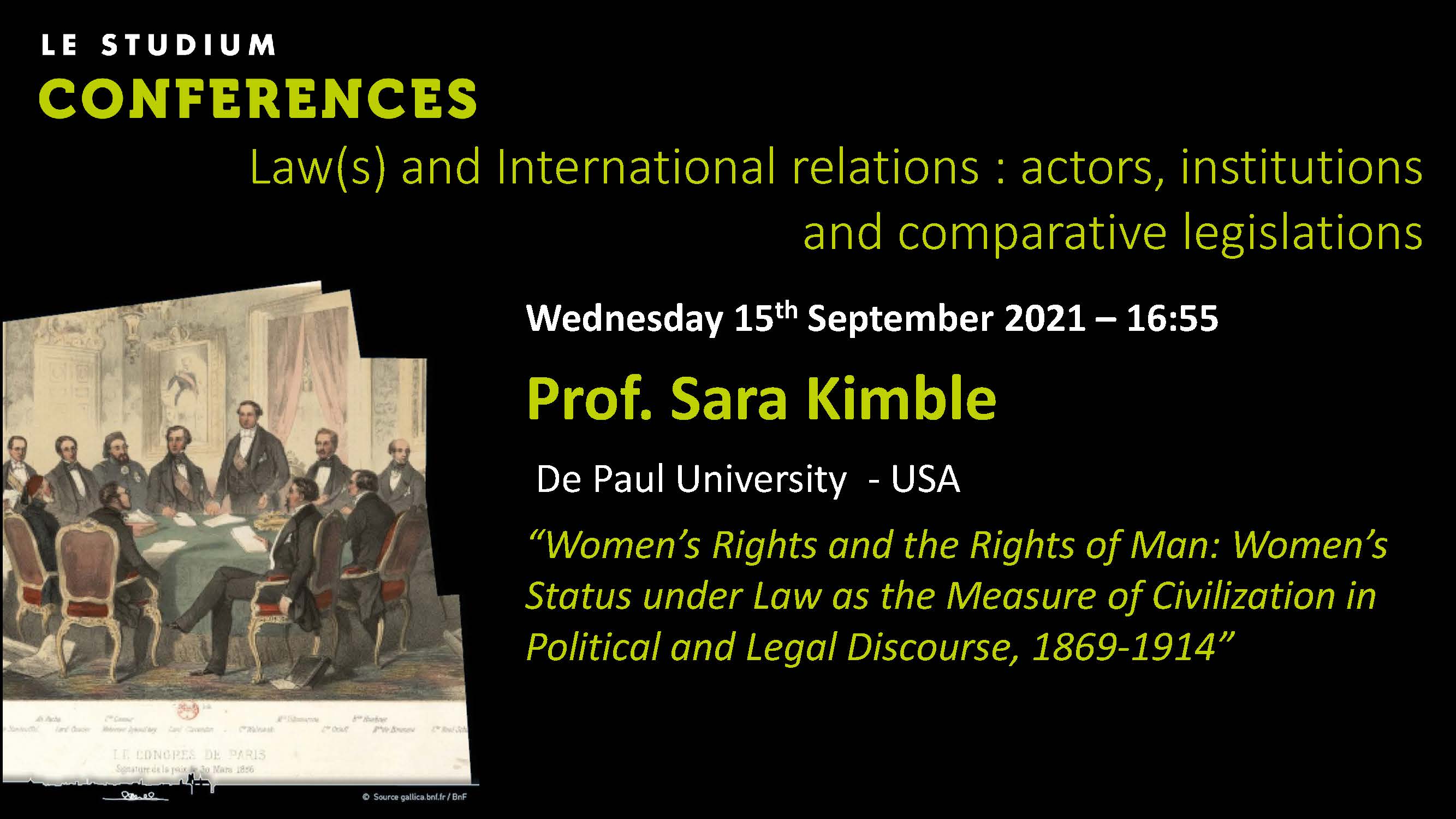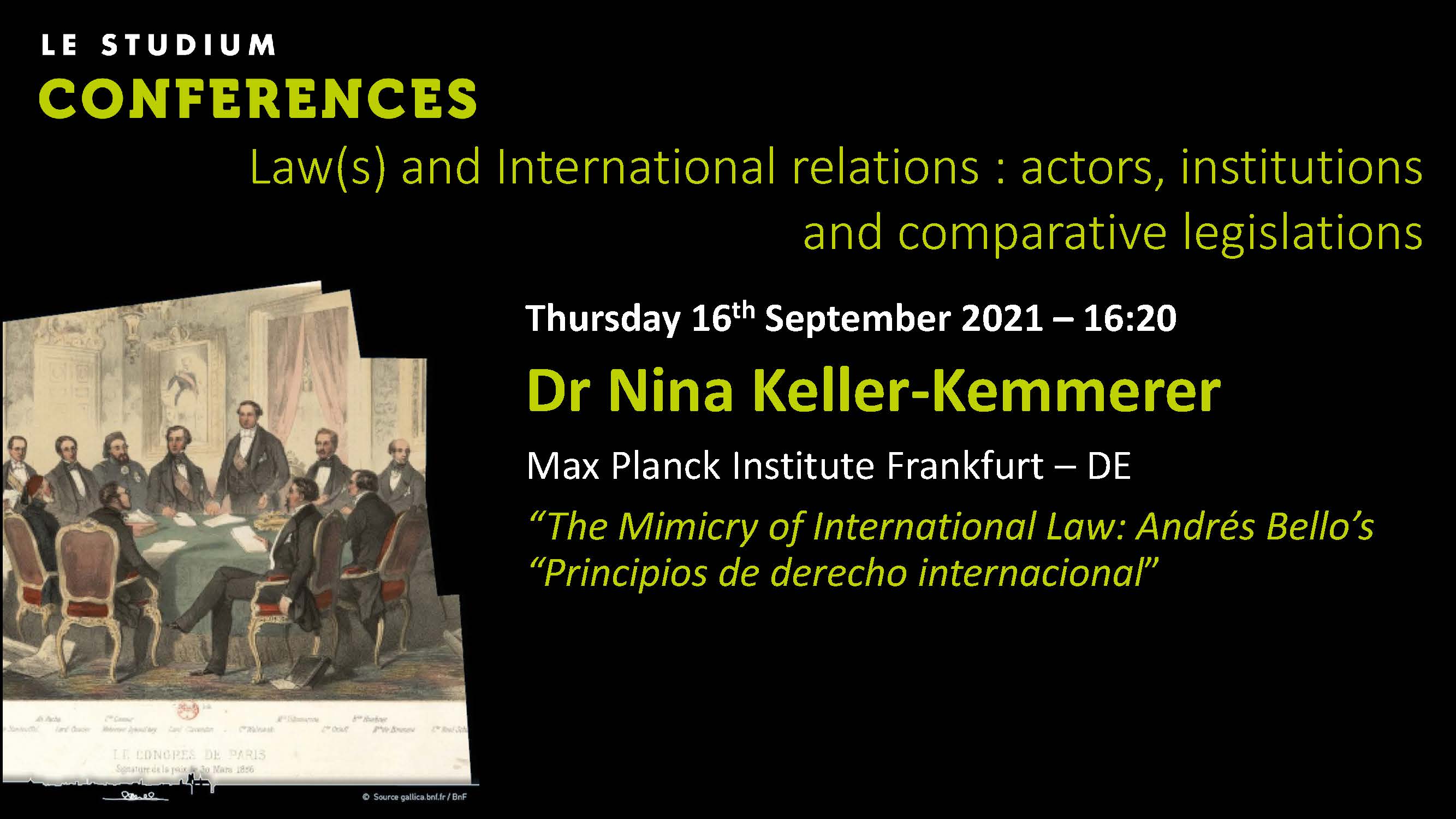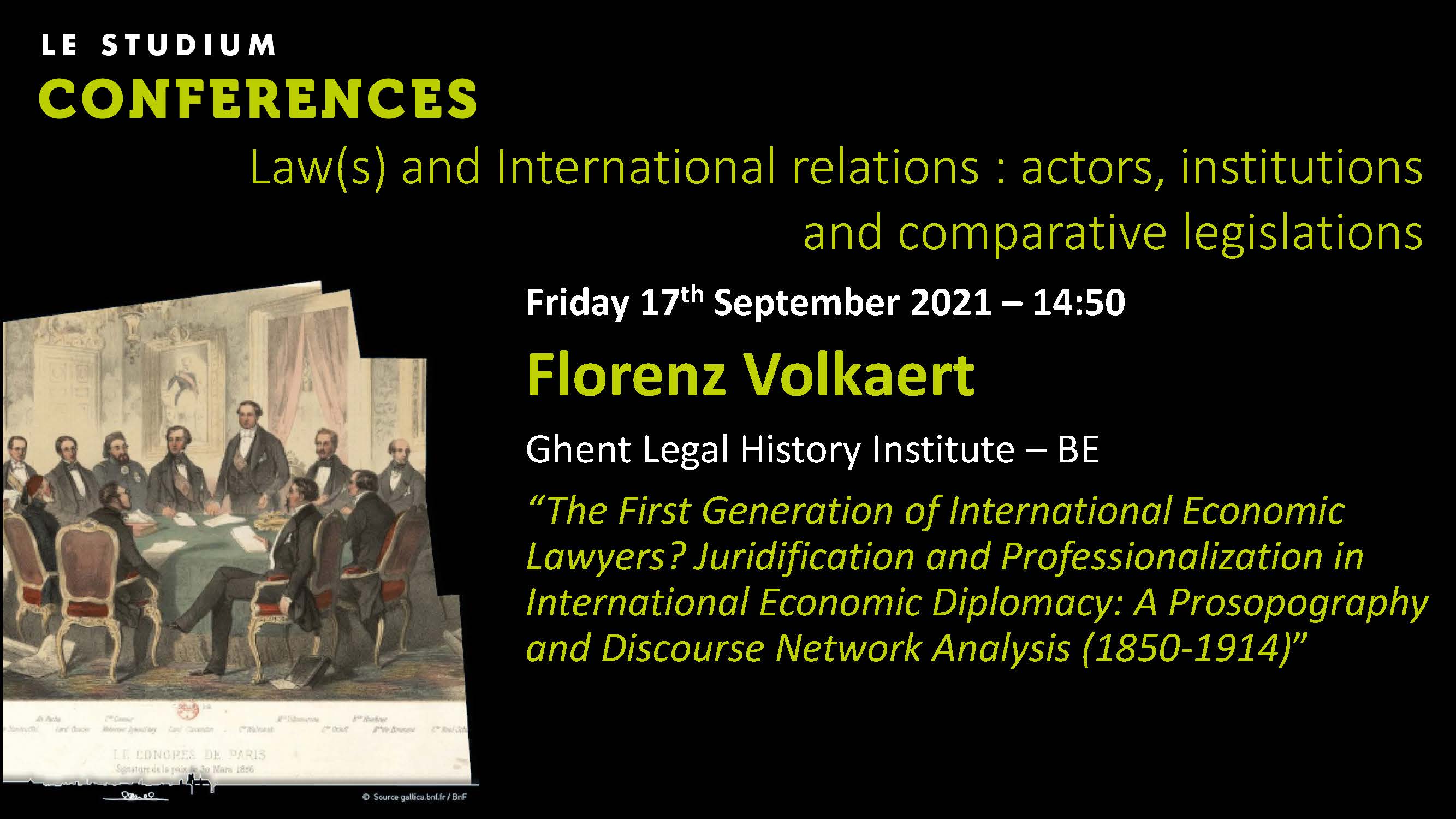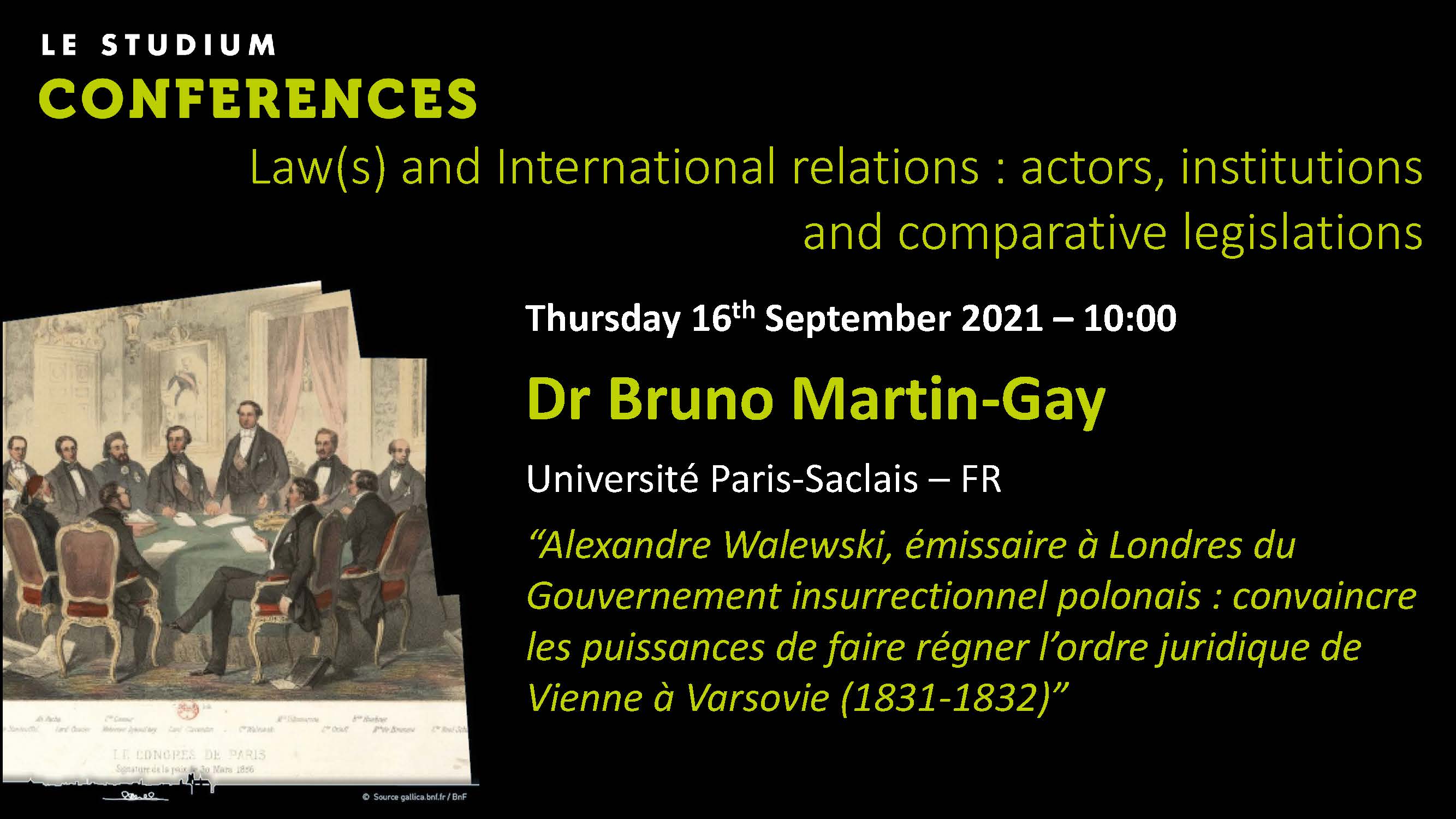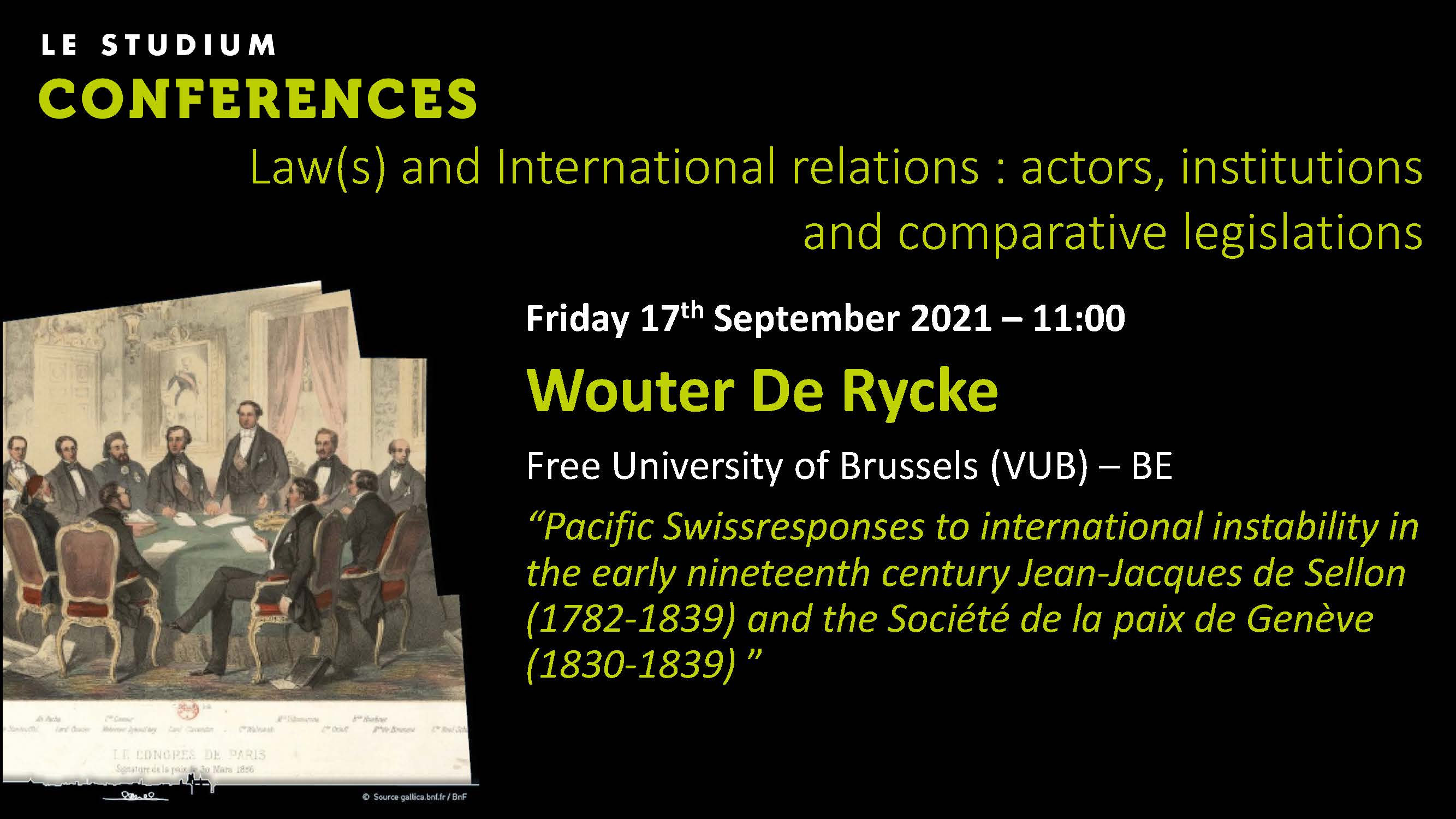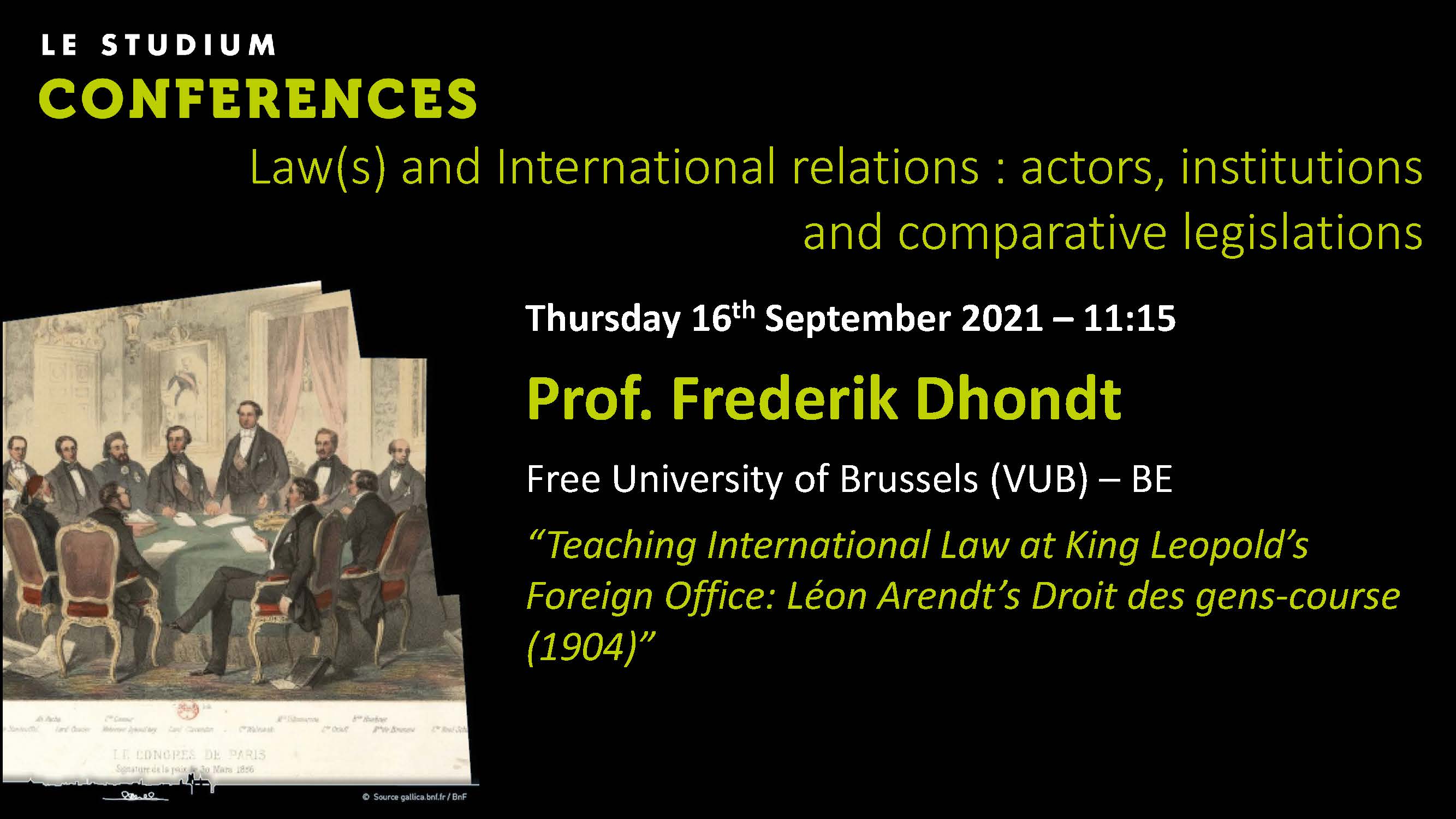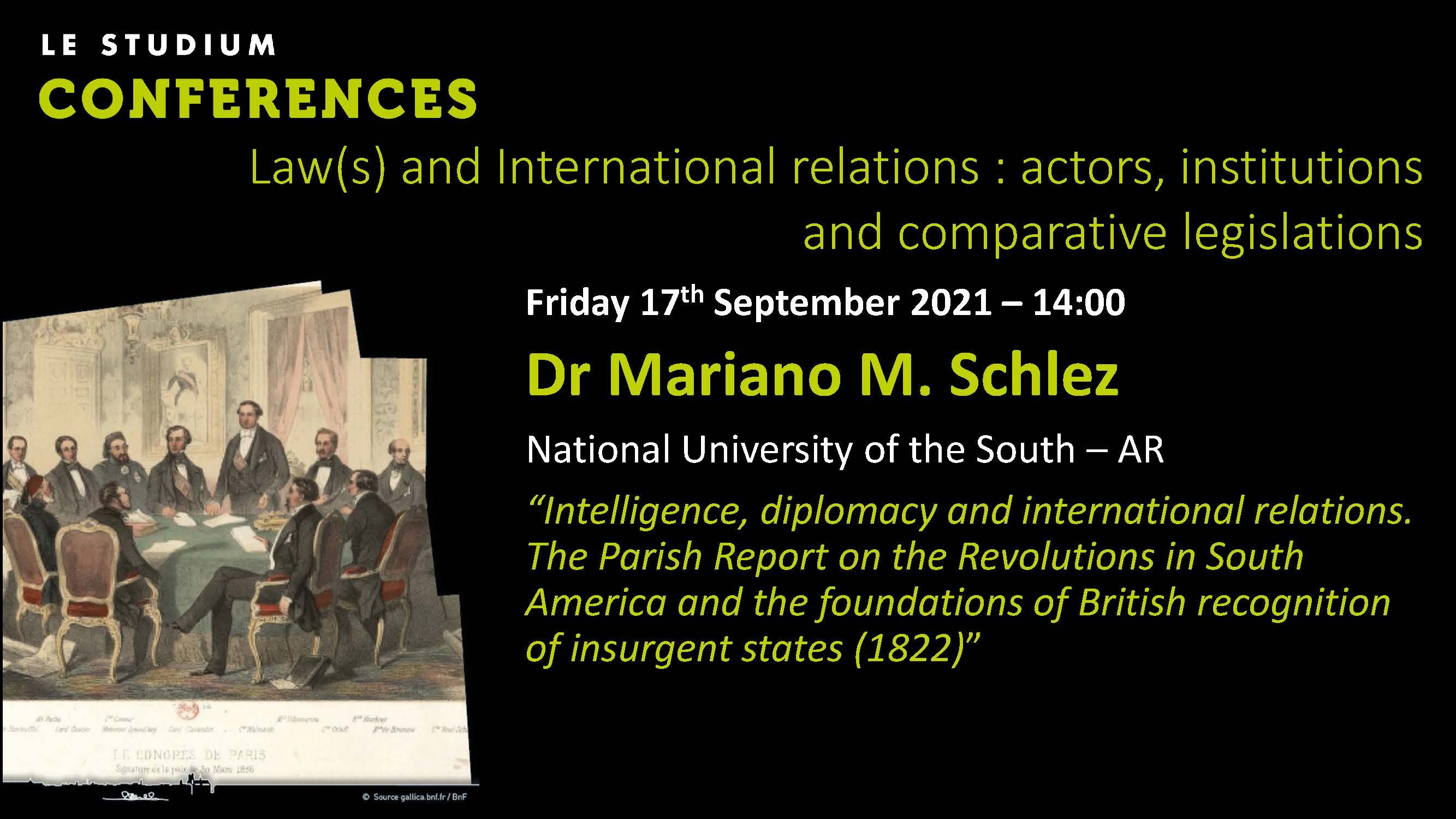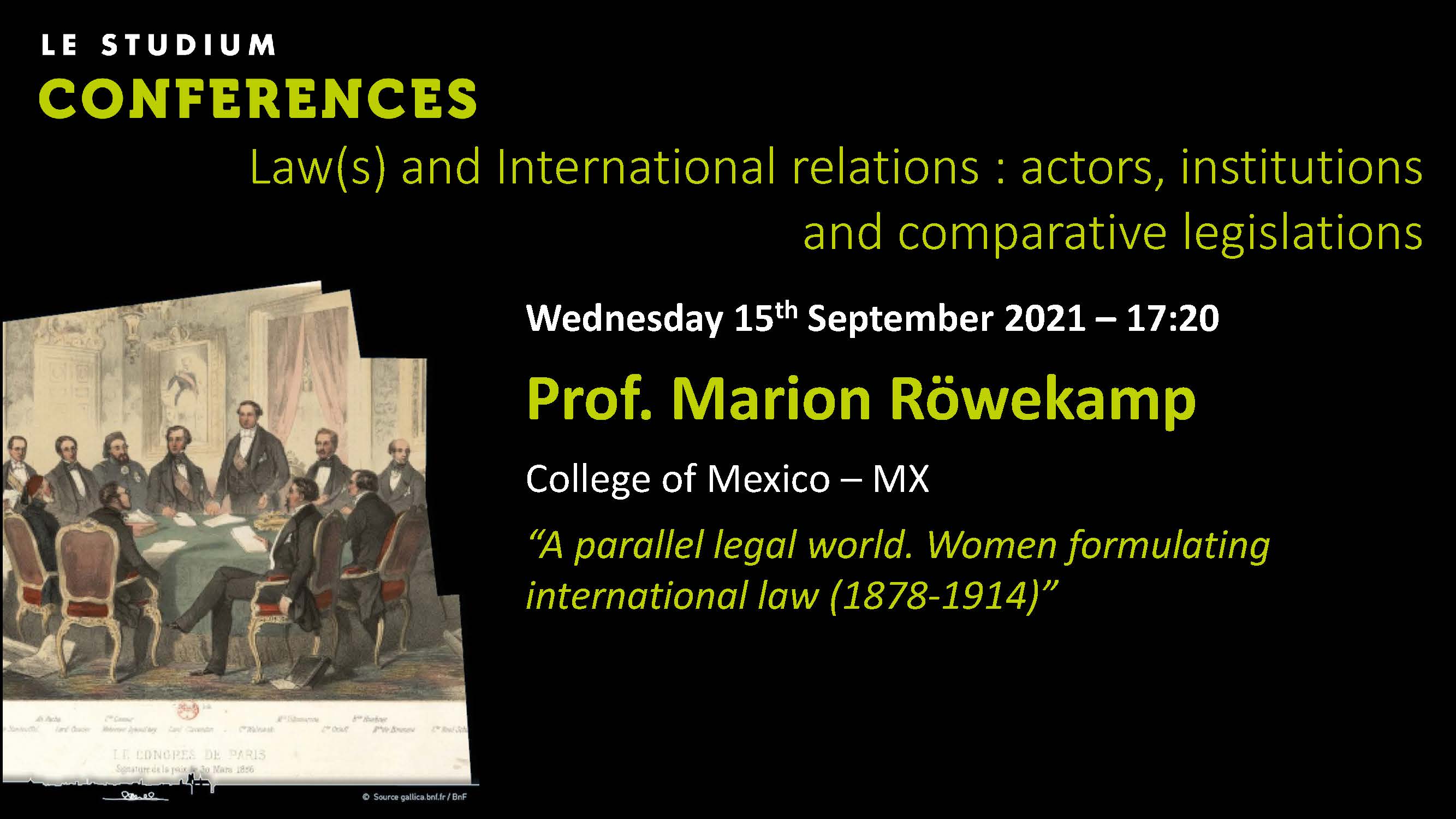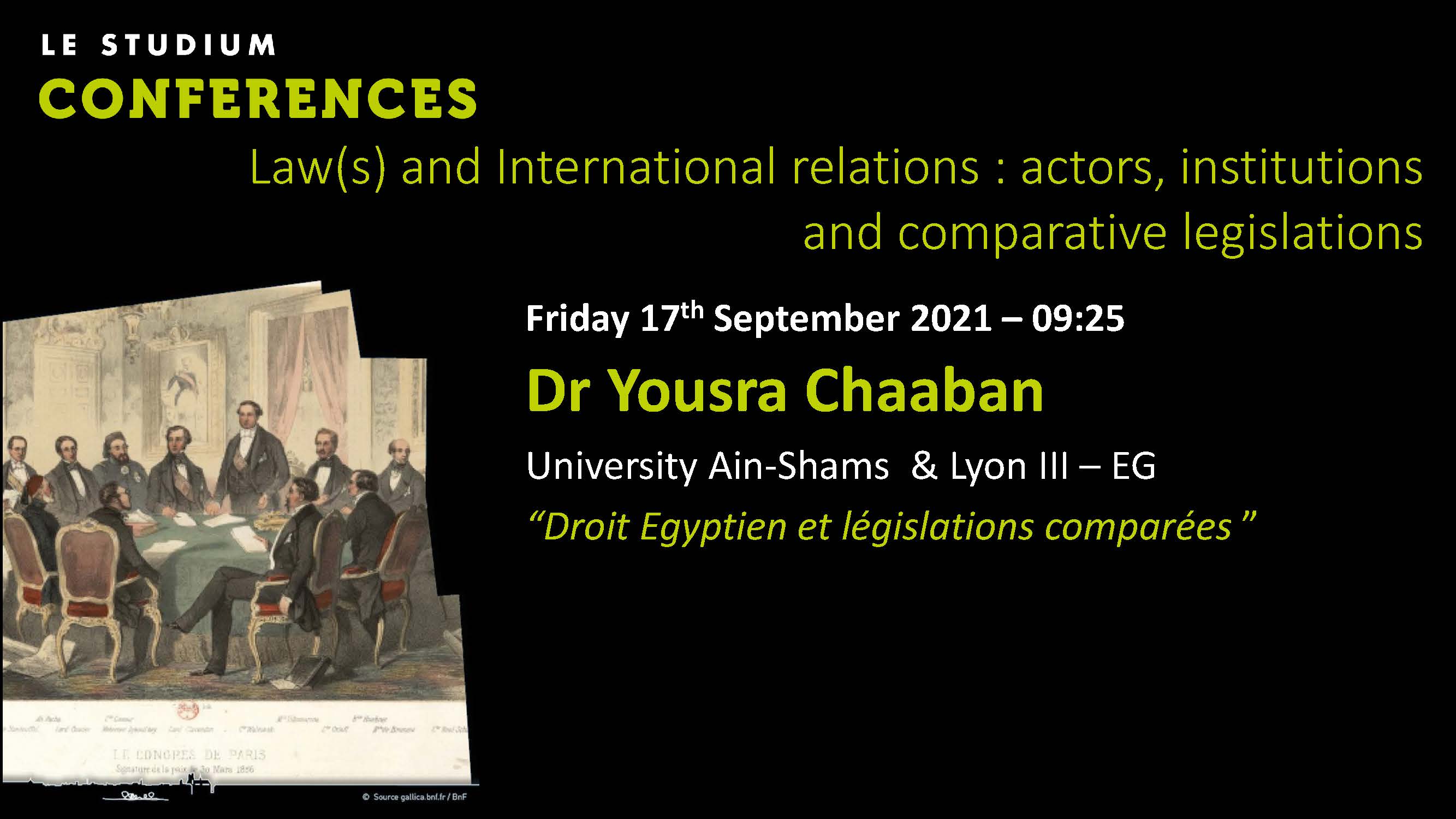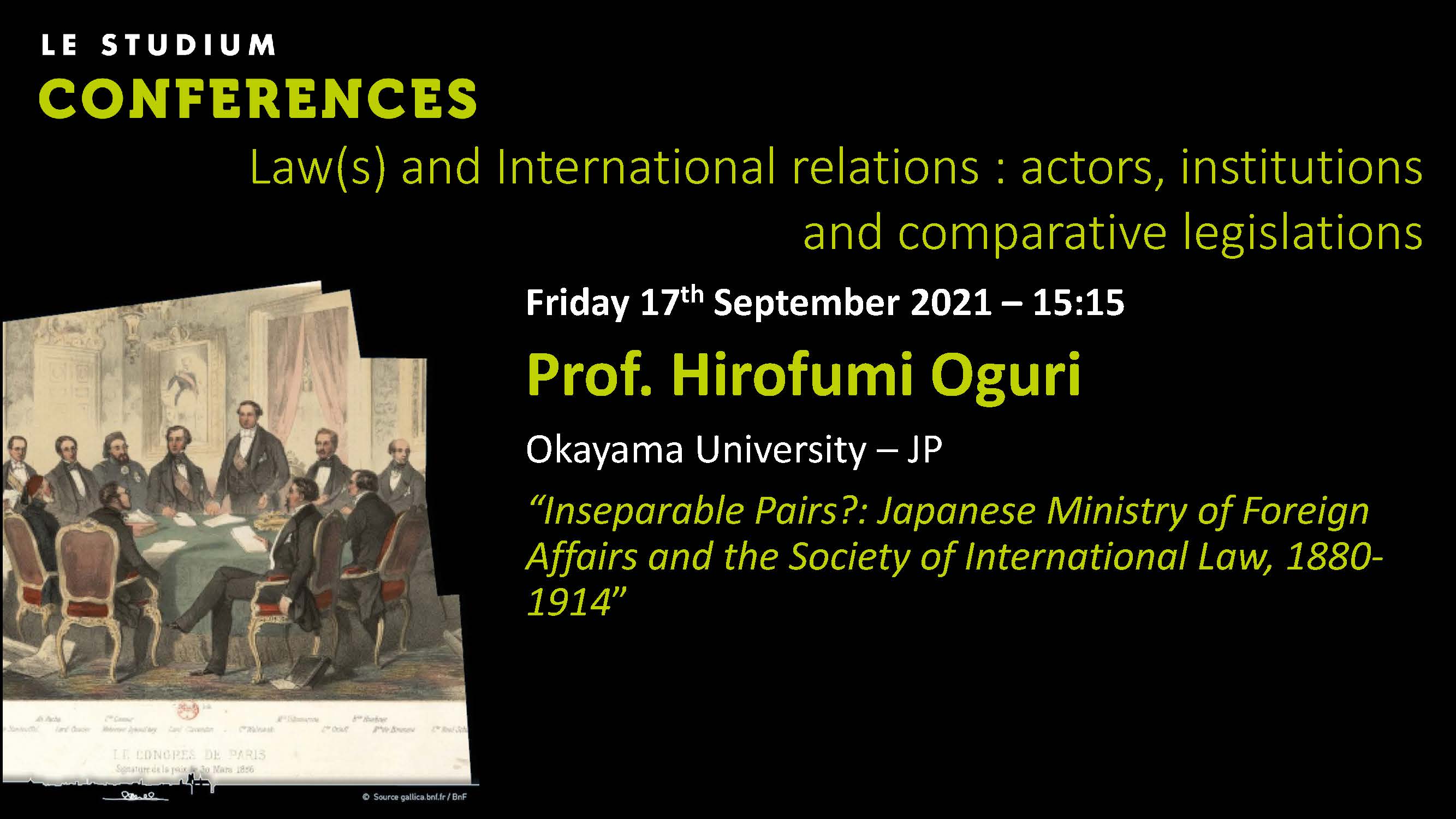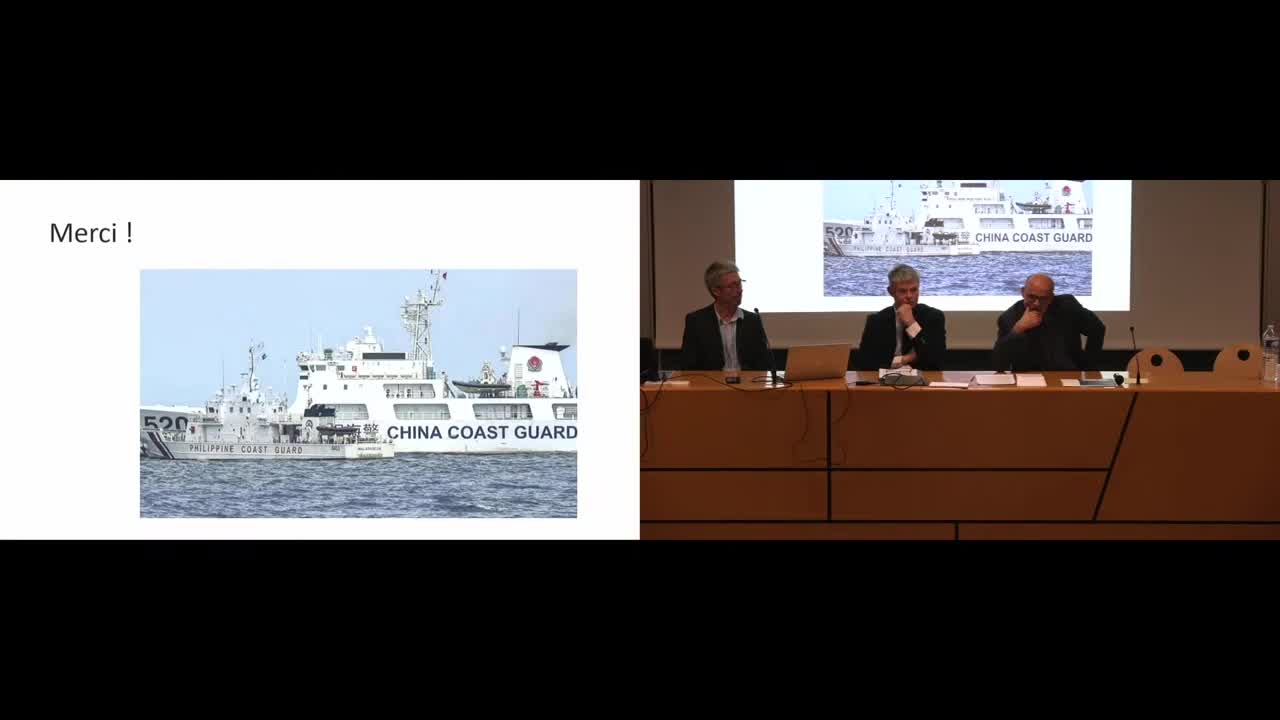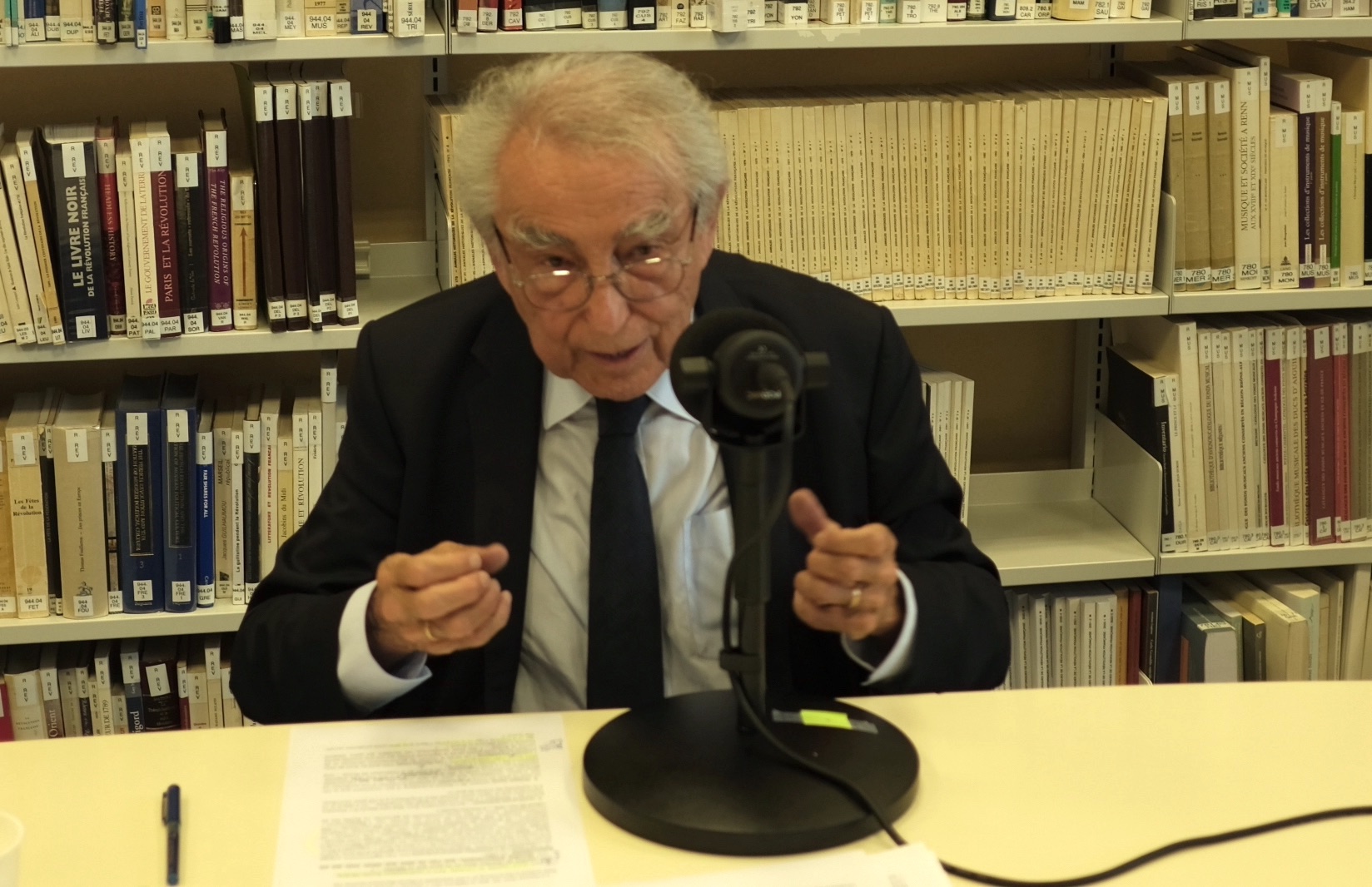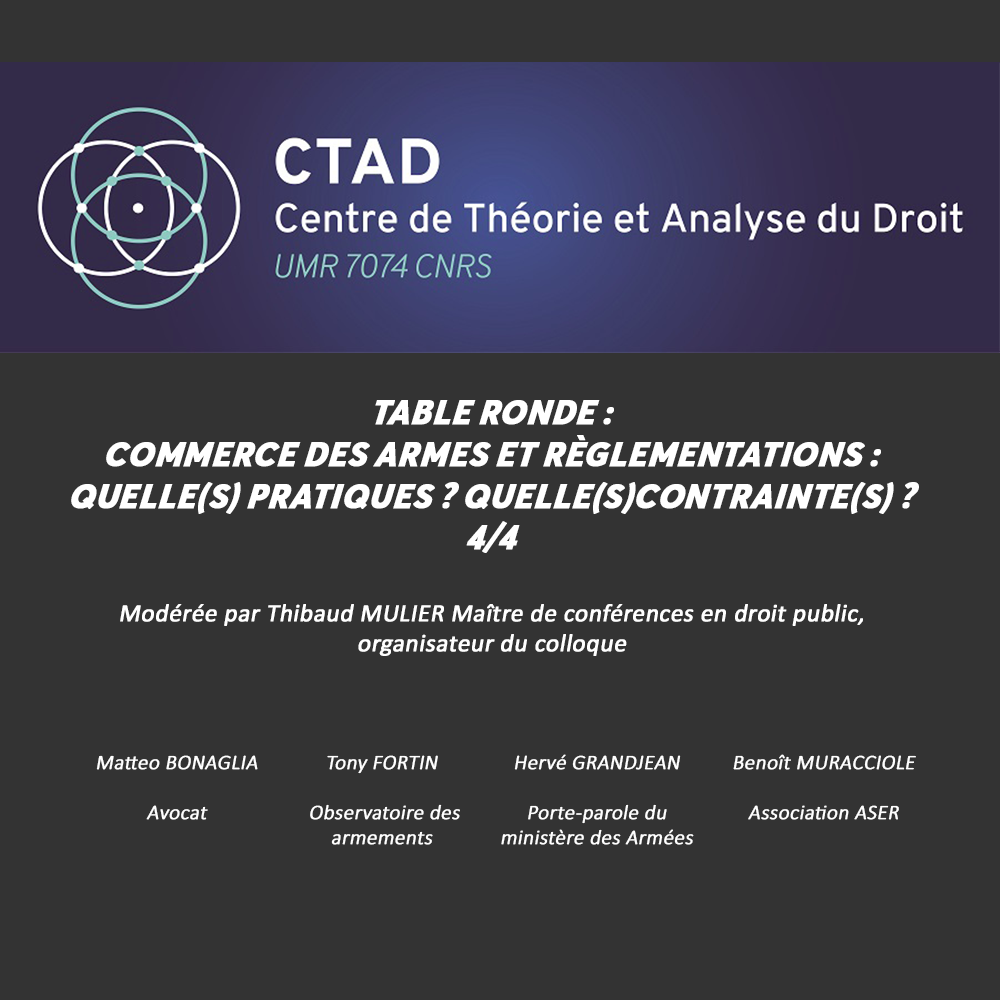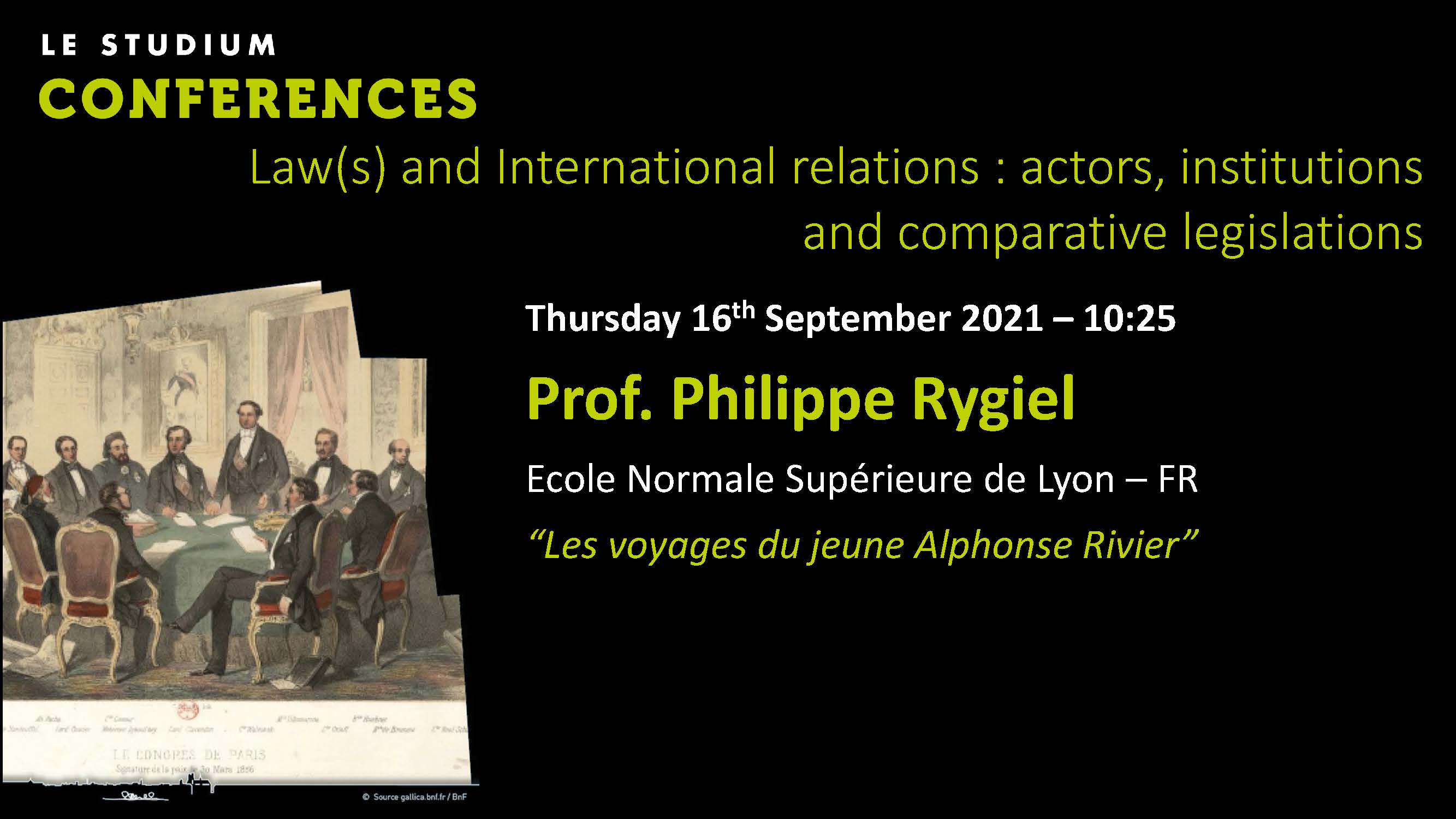Notice
Miloš Vec - How to Write a History of Western International Law?
- document 1 document 2 document 3
- niveau 1 niveau 2 niveau 3
Descriptif
My presentation focuses on somehistoriographical challenges which I face as the co-editor of the CUP volume on“Western International Law, 1776 – c.1870” (edited together with Prof. PaulinaStarski). Evidently, the volume’s title “Western International Law, 1776 – ca.1870” is demanding. It expects to treat the subject as a regional, in partslocal, but very influential variation of a plurality of global normativesystems. However, what exactly is “Western” about it and which methods andapproaches are suited best to offer convincing explanations? Writing about“Western” international law always evokes the question of the others, but whatabout the plurality within the “West”? The aim of this talk is to explore thehistoriographic, geographic and political boundaries related with thesequestions. In terms of historical sources, we would like to go beyond the usualsuspects of printed and unprinted texts, but to include visual sources andartefacts. This poses new practical and theoretical challenges that need to be addressed.The presentation will be problem-oriented and won’t try to give definiteanswers to the raised questions.
Thème
Dans la même collection
-
Paweł Fiktus - Comments by Prof. Gustaw Roszkowski on the changes in public international law
The presented topic refers to the first point and will concern one of the leading but somewhat forgotten lawyer – Gustaw Roszkowski associated with the University of Lviv. In addition to his
-
Maxime Charité - Les relations internationales dans la jurisprudence du Conseil d’État (1815-1914)
Council of State case law appears as an original prism for understanding and measuring the relationship between international relations and law(s) between 1815 and 1914. During this century, this
-
Sara Kimble - Women’s Rights and the Rights of Man: Women’s Status under Law as the Measure of Civi…
This paper explores the conceptualization of women’s rights as a measure of the advancement of societies in comparative perspective through political and legal discourse from the 1860s to 1914. My
-
Nina Keller-Kemmerer - The Mimicry of International Law: Andrés Bello’s “Principios de derecho inte…
It was the creole intellectual Andrés Bello who first promoted the European doctrines of international law in Hispano-America. 1811 he went together with Simón Bolívar on a diplomatic mission to
-
Florenz Volkaert - The First Generation of International Economic Lawyers? Juridification and Profe…
Contemporary international economic law is considered an autonomous subdiscipline of international law administered by an epistemic community of international lawyers and economists, separate from
-
Bruno Martin-Gay - Alexandre Walewski, émissaire à Londres du Gouvernement insurrectionnel polonais…
At the Congress of Vienna, the Polish question was a tricky one and depended mainly on the Russian position. After Napoleon’s escape from Elba, the discussions became harsher and Tsar Alexander I
-
Wouter De Rycke - Pacific Swissresponses to international instability in the early nineteenth centu…
Although socio-legal histories are on the rise, little scholarship has been devoted to the legal aspects of the early to mid-nineteenth century pacifism. Those who have taken notice of the so
-
Frederik Dhondt - Teaching International Law at King Leopold’s Foreign Office: Léon Arendt’s Droit …
The private papers of Léon Arendt (1848-1924), director of Political Affairs in the Belgian Foreign Office from 1896 to 1912, offer a unique insider’s view on an often little-studied aspect: the in
-
Mariano M. Schlez - Intelligence, diplomacy and international relations. The Parish Report on the R…
My work presents a description and explanation of the historical significance of the unpublished intelligence report "South America", written in 1822 by Woodbine Parish, clerk at the Foreign Office
-
Marion Röwekamp - A parallel legal world. Women formulating international law (1878-1914)
The process of women formulating international law started with congresses held by the transnational women's movement. Here female specialists met, exchanged legal knowledge, collected and compared
-
Yousra Chaaban - Droit Egyptien et législations comparées
On the other side of the Mediterranean, at the end of the 19th century and at the beginning of the 20th century, international relations, and particularly French ones, played an important role in
-
Hirofumi Oguri - Inseparable Pairs?: Japanese Ministry of Foreign Affairs and the Society of Intern…
The reception of European international law in the Meiji era (1868-1912) in Japan is characterised as full of ‘pragmatism’, based on the primary foreign policy adopted by the government. For
Sur le même thème
-
Mer de Chine du Sud : revendications d'espaces maritimes contradictoires et lectures divergentes du…
LasserreFrédéricAdoptée à Montego Bay le 10 décembre 1982 et entrée en vigueur le 16 novembre 1994, la Convention des Nations Unies sur le Droit de la Mer (CNUDM) compte aujourd’hui 169 Parties, dont l’Union
-
Crimes de guerre
CotteBrunoBruno Cotte, haut magistrat français, qui a présidé durant plusieurs années une chambre de première instance à la Cour pénale internationale de La Haye, intervient sur la notion de « Crimes de guerre
-
Colloque exportations d’armements et droit public Table ronde Commerce des armes et règlementation,…
COLLOQUE EXPORTATIONS D’ARMEMENTS ET DROIT PUBLIC TABLE RONDE : COMMERCE DES ARMES ET RÈGLEMENTATIONS : QUELLE(S) PRATIQUES ? QUELLE(S)CONTRAINTE(S) ? Modérateur : Thibaud MULIER (Maître de
-
Colloque exportations d’armements et droit public. Décider et contrôler l'exportation (Partie 2/4)
COLLOQUE EXPORTATIONS D’ARMEMENTS ET DROIT PUBLIC Second Panel : DÉCIDER ET CONTRÔLER L’EXPORTATION Présidé par Arnaud SÉE (Professeur de droit public – CRDP) LA DÉCISION D’EXPORTER : DU CONTRÔLE
-
Colloque exportations d’armements et droit public. Encadrer l'exportation (Partie 3/4)
COLLOQUE EXPORTATIONS D’ARMEMENTS ET DROIT PUBLIC Troisième Panel : ENCADRER L’EXPORTATION Présidé par Jean-Louis Halpérin, Professeur, Directeur du CTAD EXPORTATIONS D’ARMES ET ÉTAT DU DROIT
-
Colloque exportations d’armements et droit public. Introduction et Pourquoi exporter ? (Partie 1/4)
COLLOQUE EXPORTATIONS D’ARMEMENTS ET DROIT PUBLIC OUVERTURE DU COLLOQUE Anne-Laure CHAUMETTE-VAURS (Maître de conférences HDR en droit public – CEDIN ; Co-directrice de l’UFR DSP) et Thibaud MULIER
-
Frederik Dhondt - Teaching International Law at King Leopold’s Foreign Office: Léon Arendt’s Droit …
The private papers of Léon Arendt (1848-1924), director of Political Affairs in the Belgian Foreign Office from 1896 to 1912, offer a unique insider’s view on an often little-studied aspect: the in
-
Maxime Charité - Les relations internationales dans la jurisprudence du Conseil d’État (1815-1914)
Council of State case law appears as an original prism for understanding and measuring the relationship between international relations and law(s) between 1815 and 1914. During this century, this
-
Marion Röwekamp - A parallel legal world. Women formulating international law (1878-1914)
The process of women formulating international law started with congresses held by the transnational women's movement. Here female specialists met, exchanged legal knowledge, collected and compared
-
Nina Keller-Kemmerer - The Mimicry of International Law: Andrés Bello’s “Principios de derecho inte…
It was the creole intellectual Andrés Bello who first promoted the European doctrines of international law in Hispano-America. 1811 he went together with Simón Bolívar on a diplomatic mission to
-
Florenz Volkaert - The First Generation of International Economic Lawyers? Juridification and Profe…
Contemporary international economic law is considered an autonomous subdiscipline of international law administered by an epistemic community of international lawyers and economists, separate from
-
Philippe Rygiel - Les voyages du jeune Alphonse Rivier
Alphonse Rivier (1835-1898) is a forgotten member of the generation of internationalists who participated in the institutionalization of international law. Author of treatises, translator of Tobias

